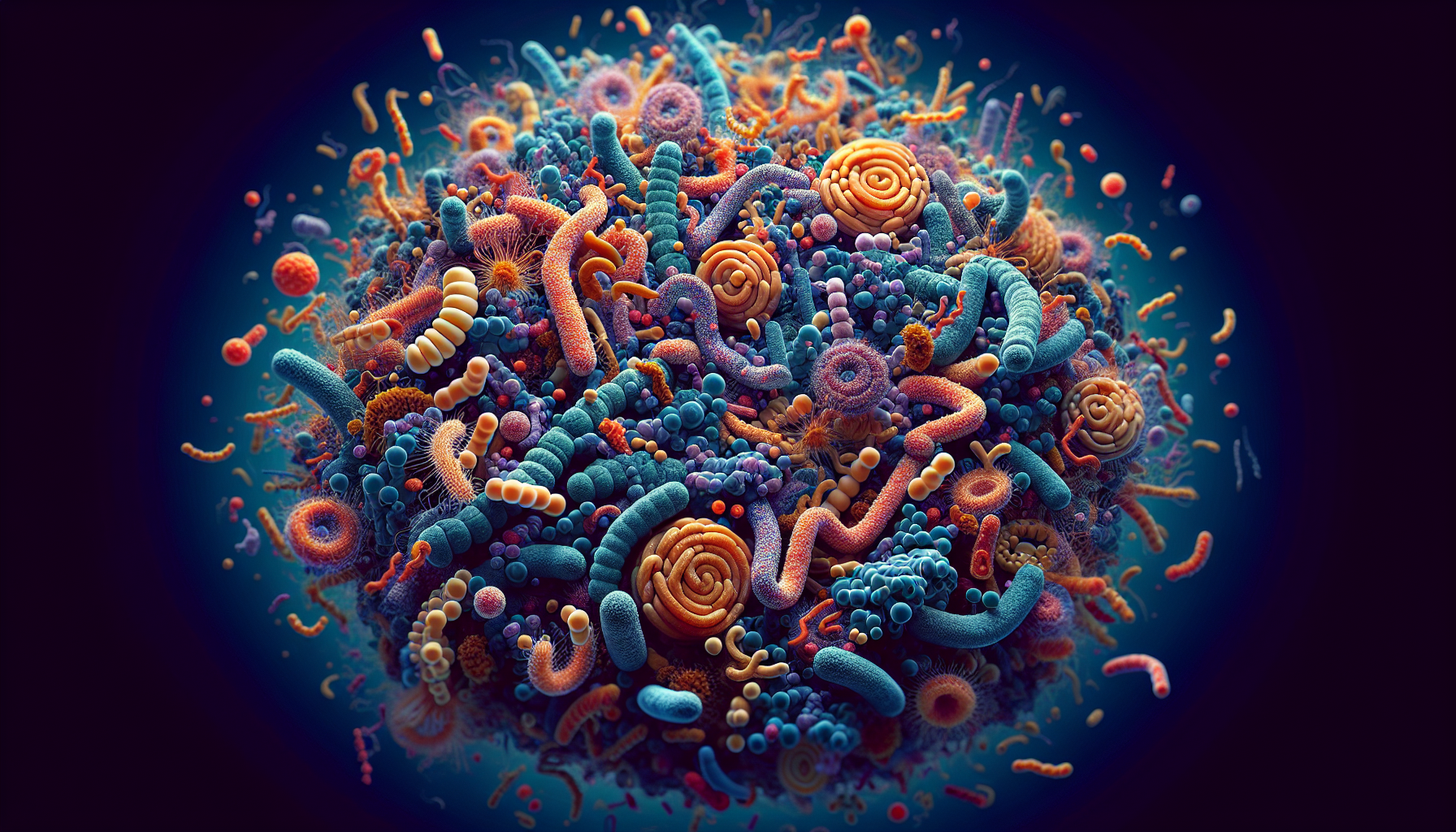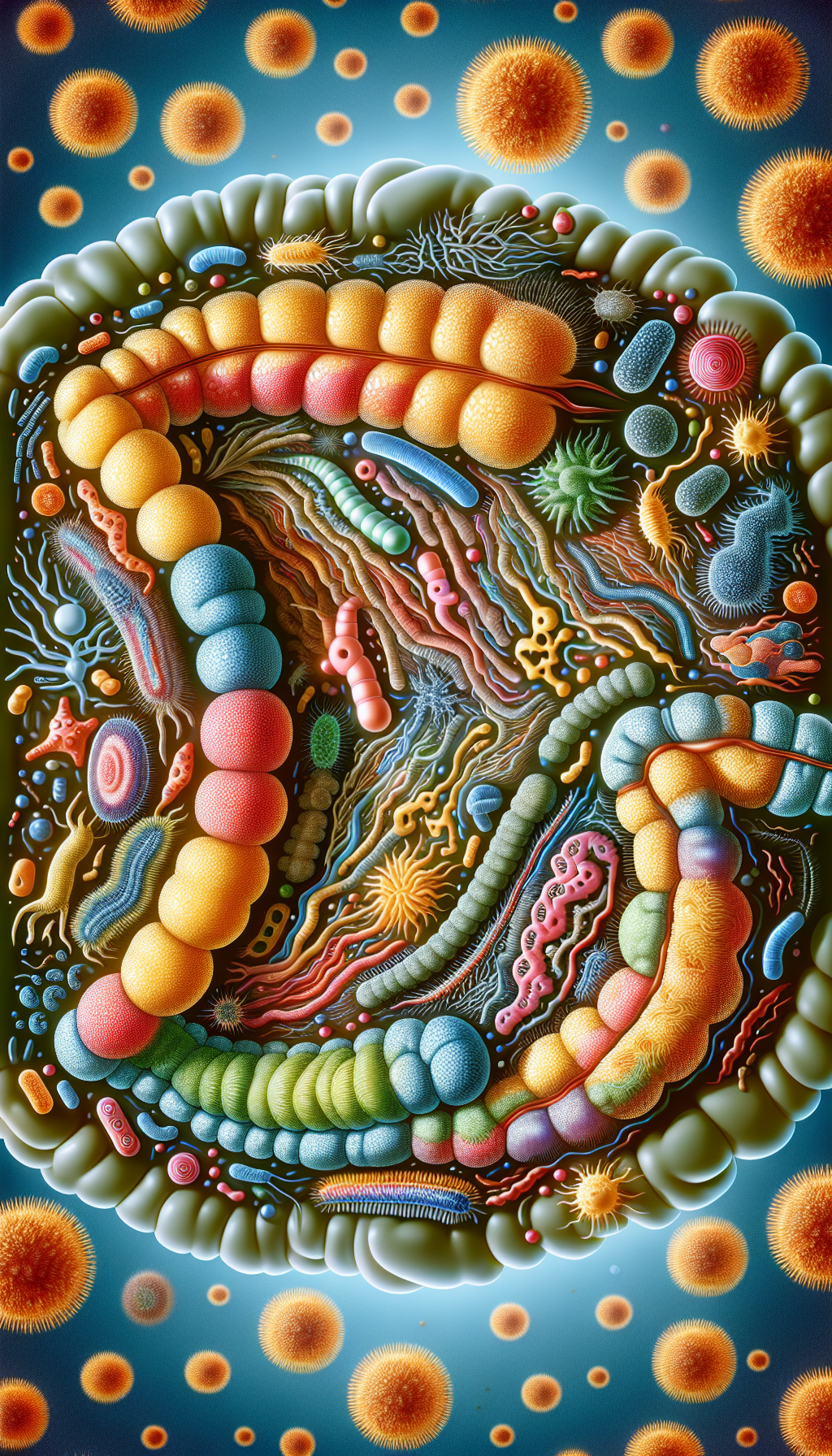The human gut microbiome is a complex and dynamic ecosystem, teeming with trillions of microorganisms that play a critical role in our overall health. Far from being passive passengers, these microscopic inhabitants are actively engaged in a symbiotic relationship with us, their host. One of the most vital functions they perform is aiding in the process of nutrient absorption. This article delves into the intricate world of the microbiome and its impact on how our bodies utilize the nutrients we consume.
The Gut Microbiome: A Brief Overview
Before exploring the microbiome’s role in nutrient absorption, it is essential to understand what the microbiome is. The gut microbiome refers to the collective genome of all the microorganisms, including bacteria, fungi, viruses, and protozoa, that reside in the gastrointestinal tract. These organisms contribute to a host of physiological functions, from immune system regulation to the synthesis of vitamins and neurotransmitters.
How the Microbiome Influences Nutrient Absorption
Nutrient absorption is a complex process that begins the moment we ingest food. Enzymes and digestive juices break down food into its constituent parts, which are then absorbed through the lining of the gut. However, the microbiome plays a key role in this process in several ways:
- Breakdown of Complex Molecules: Some nutrients, such as certain fibers and complex starches, are resistant to human digestive enzymes. Gut bacteria possess unique enzymes that can break down these molecules, releasing absorbable nutrients.
- Synthesis of Essential Nutrients: The microbiome is responsible for the synthesis of several essential vitamins, such as vitamin K and certain B vitamins, which are critical for maintaining various bodily functions.
- Enhancement of Mineral Absorption: Microorganisms can change the pH within the gut or bind to minerals, enhancing the body’s ability to absorb minerals like calcium and magnesium, which are vital for bone health.
The Microbiome’s Interactions with Diet
Diet is a primary factor that influences the composition and functionality of the gut microbiome. The types of food we consume can either promote the growth of beneficial bacteria or harmful pathogens. For instance, a diet rich in diverse fibers can foster a varied microbiome, which is associated with better health outcomes.
- Probiotics and Prebiotics: Probiotics are live beneficial bacteria found in certain foods and supplements, while prebiotics are fibers that serve as food for these bacteria. Consuming a balance of both can support a healthy microbiome and, consequently, nutrient absorption.
- Impact of Dietary Patterns: Diets like the Mediterranean diet have been shown to positively influence the microbiome due to their high content of fiber, unsaturated fats, and polyphenols.
The Role of the Microbiome in Digestive Health
The health of our digestive system is intricately linked to the state of our microbiome. A balanced microbiome supports the integrity of the gut lining, protecting against conditions such as leaky gut syndrome, and plays a part in managing inflammation within the gut.
- Interaction with the Immune System: A large portion of the body’s immune cells resides in the gut. A healthy microbiome communicates with these cells, helping to regulate immune responses and maintain gut health.
- Influence on Gut Disorders: Imbalances in the microbiome, known as dysbiosis, have been associated with gastrointestinal conditions like irritable bowel syndrome (IBS). Adhering to a Low FODMAP Diet can help manage IBS symptoms by reducing the fermentation of certain carbohydrates that can disrupt the microbiome.
External Influences on the Microbiome
While diet is a significant influencer of the microbiome, other factors can also have a profound impact:
- Antibiotics and Medications: Antibiotics, while life-saving, can have a collateral effect on the gut microbiome by killing beneficial bacteria. It’s essential to use these medications judiciously and consider probiotic supplementation as a countermeasure.
- Lifestyle Factors: Stress, sleep, and exercise all interact with the microbiome. For example, poor sleep patterns can negatively impact the microbiome, which in turn affects sleep quality, creating a cycle that can harm digestive health.
The Future of Microbiome Research
The field of microbiome research is rapidly expanding, with scientists unraveling more connections between the microbiome and various aspects of human health daily. In the future, we may see personalized nutrition plans based on individual microbiome profiles, targeted probiotics for specific health conditions, and even the use of microbiome transplants as a therapeutic intervention.
Practical Tips for Supporting Your Microbiome
To support your microbiome and, by extension, your nutrient absorption, consider the following tips:
- Diversify Your Diet: Include a wide range of fiber-rich foods to promote microbiome diversity.
- Incorporate Fermented Foods: Foods such as yogurt, kefir, and sauerkraut contain live cultures that can benefit your gut bacteria.
- Minimize Processed Foods: Highly processed foods can disrupt the balance of your microbiome and should be consumed in moderation.
- Stay Hydrated: Water is essential for maintaining the mucosal lining of the intestines, where much of the microbiome resides.
- Exercise Regularly: Physical activity has been shown to positively influence the diversity and richness of the microbiome.
Conclusion
The gut microbiome’s role in nutrient absorption is a testament to the intricate ways in which our bodies are connected to the microscopic world. By understanding and supporting our microbiome, we can improve our digestive health and overall well-being. As research continues to unfold, the potential for harnessing the power of the microbiome in health and disease appears boundless.
For further exploration of how lifestyle choices impact digestive health, consider reading about the effects of stress management on gastrointestinal well-being and the relationship between gut health and skin conditions. These resources offer invaluable insights into maintaining a healthy microbiome and, by extension, a healthier you.



